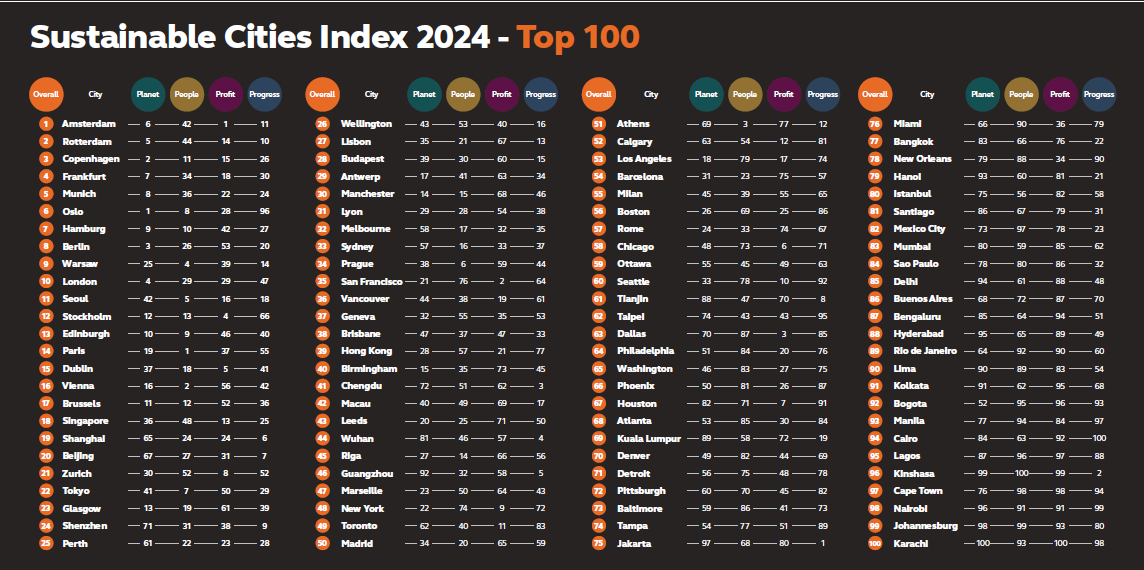Athens is among the 100 most sustainable cities in the world, while Amsterdam is the most sustainable city, according to the Arcadis Sustainable Cities Index 2024.
In particular, the Greek capital is in the middle of the ranking, in 51st place.
Two Dutch cities, Amsterdam and Rotterdam, dominate the global ranking of 100 sustainable cities, coming in first and second place respectively.
Amsterdam takes first place as the most sustainable city, thanks to its strong economic performance, social equality and investment in renewable energy, while Rotterdam scores highly on environment, recycling and participatory action.
Arcadis’ Sustainable Cities 2024 Index reveals wide disparities in sustainability progress as cities struggle to meet the 2030 Sustainable Development Goals.

European… Top 10 case
Western European cities such as Rotterdam, Copenhagen, Frankfurt and Munich dominate the top of the index.
As in previous years, the environmental pillar appears to be the strongest pillar of the overall assessment list. Nine of the top 10 cities for the environmental pillar are also in the top ten of the overall list.
In terms of progress over the past decade, many European cities have continued to take important steps – despite their highly sustainable starting points – to consolidate their position at the top of the Arcadis Sustainable Cities Index. Amsterdam, Rotterdam, Warsaw, Copenhagen, Frankfurt, Munich, Hamburg and Berlin have maintained their momentum. This is due – in the case of Amsterdam in particular – to the commitment to renewable energy production, as well as socio-economic factors such as women’s labour force participation and healthcare.
The Arcadis Sustainable Cities Index (SCI) ranks 100 cities worldwide based on three pillars of sustainability – planet, people and profit. The 6th publication of the report since its launch in 2015, includes 67 metrics that highlight the evolving understanding of urban sustainability. Key benchmarks include air pollution, waste management and investments in low-carbon infrastructure (including renewable energy and sustainable transport), as well as factors such as economic performance, social equity and resilience to natural disasters.
This year, for the first time, Arcadis also added a fourth pillar “Progress” to the index. This measures change over time to demonstrate the impact of sustainability interventions made over the past decade. When considered together with the other pillars, it provides insights into a city’s future trajectory and highlights the importance of continuous progress to achieve the Sustainable Development Goals.




